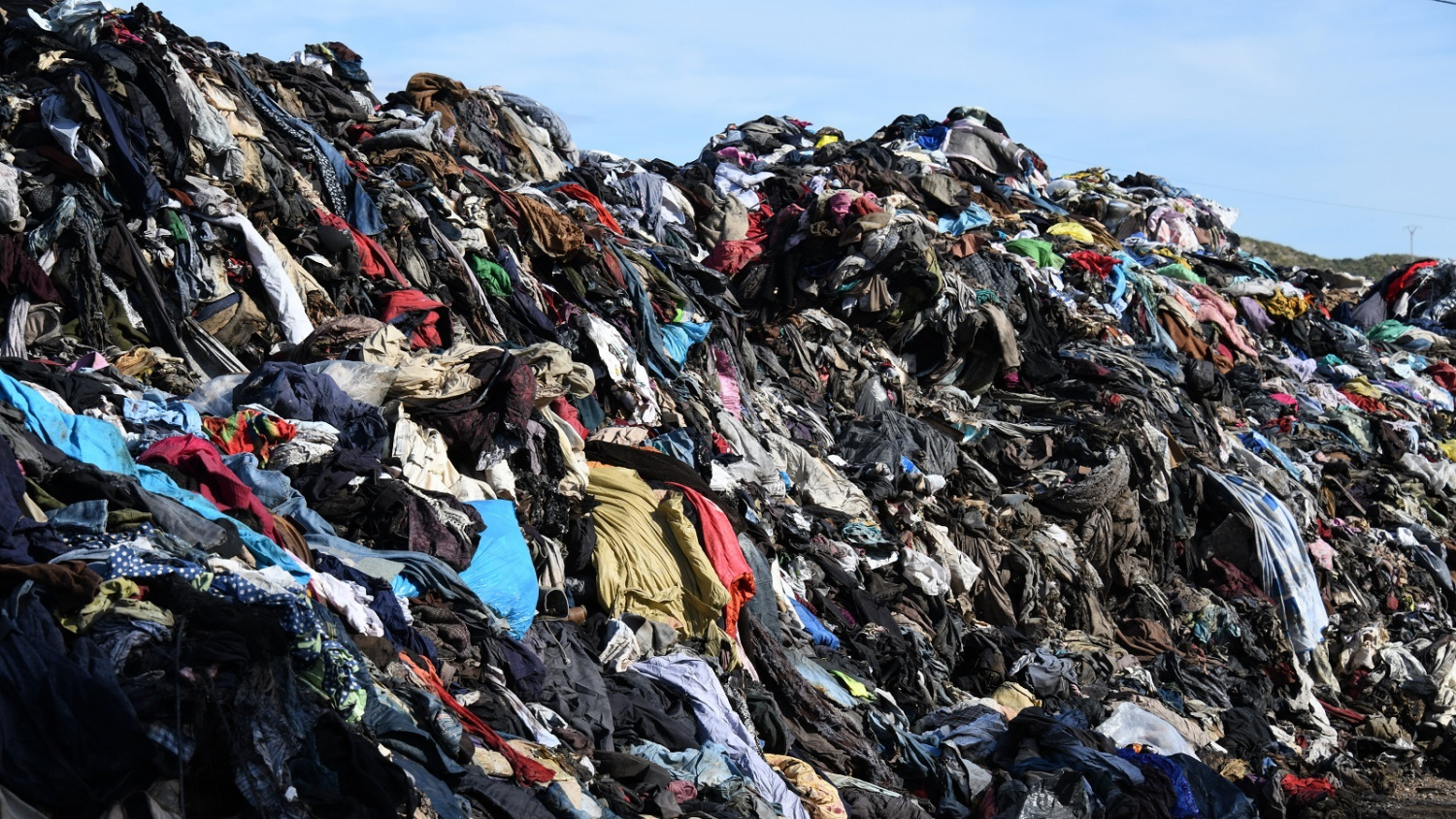
Forever 21: Waste is out of fashion
Sign our petition calling on Forever 21 CEO Winnie Park to commit the company to not trashing or burning new, unsold clothing.
Some of the companies whose products and services we use every day – from Amazon to Google – are helping to make a healthier, more sustainable future possible.
A cleaner, less wasteful and more sustainable future depends on more than just our individual actions. We need the companies that produce and sell so much of the stuff that we buy and use every day to do their part, too.
This past year, we’ve helped convince four companies to make commitments that will help make a healthier, more sustainable future possible.
Earlier this year, California adopted a first-in-the-nation right to repair law. This means Californians will have access to the parts, tools and repair information they need to fix their phones, printers, appliances and other electronic devices when they break.
This was great news for the Golden State – but a farther-reaching victory was right around the corner. In late October, Apple announced that the company would comply with California’s new Right to Repair rules nationwide.
That means Apple will provide access to spare parts, service manuals and repair tools for their products — like iPhones and Macbooks — regardless of what state Americans live in.
It could make a big difference: Americans discard 416,000 cell phones each day. When we can use our electronics for longer, we waste less – and we produce less hard-to-recycle e-waste.
That’s not even to mention that Apple’s conduct influences other manufacturers. In 2024, we will work to carry this momentum forward and further expand the right to repair nationwide.
Chromebooks are inexpensive laptops very common in schools, especially since the practice of providing a device to every student expanded during the outset of the Coronavirus pandemic.
The massive boost in Chromebook sales turned into an e-waste countdown clock. Every Chromebook came pre-installed with an “expiration date” after which it would no longer receive updates. The laptops were physically fine, but the lack of software support rendered them unusable. Piles of perfectly good computers ended up getting thrown away as e-waste.
But then, thanks to advocacy spearheaded by PIRG, Google announced in September that it would extend the automatic update “expiration date” to 10 years for all Chromebook models released since 2021.
Now, students, teachers and parents can shop for computers without fear of needing to throw it away in just a year or less.
If you’ve ever shopped online, you know that the thing you ordered often arrives at your doorstep swathed in extra packaging. Oftentimes, items are packaged in flimsy plastic that’s extremely hard to recycle.
In fact, when CALPIRG conducted research to test if Amazon’s blue-and-white padded envelopes were as recyclable as the company claimed, none of the 10 plastic mailers that volunteers placed in store drop-off recycling bins ended up in local recycling centers.
But the good news is that those flimsy padded mailers are going to be a thing of the past soon. Amazon announced in July that it would phase out padded bags containing plastics in favor of recyclable alternatives.
We still have a long way to go to make online shopping waste-free, but cutting back on this form of wasteful packaging is a promising start. Amazon has even eliminated plastic delivery packaging completely at one of its fulfillment centers in Ohio, so we know the company can be convinced to reduce waste.
Costco is, in a very literal sense of the word, a big-box retailer. Even small items on Costco’s shelves often come wrapped in big, bulky plastic packages. All that packaging adds up to a lot of waste.
That’s why PIRG, Environment America and Environmental Action together delivered more than 82,400 petitions urging Costco to cut back on wasteful packaging — and the company is listening.
Costco announced in October that it would begin developing an action plan to reduce the amount of plastic it uses. It also agreed to be more transparent about how much plastic the company actually uses in its Kirkland brand of products.
These commitments are a good step forward, but we hope this is just the beginning. Our work to encourage Costco to significantly reduce its plastic use will continue in 2024 and beyond.
Fast fashion companies like Forever 21 always have the latest trends on their shelves – but what happens to last season’s looks when the store restocks?
To make room for a new shipment of clothing, fast fashion retailers dump unsold clothing directly into the trash. Millions of tons of perfectly good clothes end up in landfills or incinerators each year. Thanks in part to this ever-changing world of fast fashion, clothing and textile waste is the fastest-growing waste stream in the United States.
Throwing away brand new clothes means that the resource-intensive process required to make new clothes must then be repeated over and over again. This wastes tons of natural resources and drives pollution.
That’s why we’re calling on Forever 21 to be an industry leader by publicly committing to never burning or trashing overstock. If a major company like Forever 21 does this, it would create a ripple effect across the industry that changes the world for good.
Sign our petition calling on Forever 21 CEO Winnie Park to commit the company to not trashing or burning new, unsold clothing.
Sign the petition